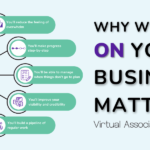 Over the past several months, several of my clients have witnessed the disruption of their industries. This can’t be minimised: to have a rock solid understanding of who you are as a business and how to plan to compete one day and to see that upended with the evolution of technology and/or the social landscape is quite disturbing.
Over the past several months, several of my clients have witnessed the disruption of their industries. This can’t be minimised: to have a rock solid understanding of who you are as a business and how to plan to compete one day and to see that upended with the evolution of technology and/or the social landscape is quite disturbing.
While the clients are facing very different agents causing disruption across multiple industries, they all have one great asset: corporate culture. They understand success lies directly with a strong, attractive set of guiding principles that will see them through any challenging time.
Corporate culture can be defined in many ways, but the most common colloquial definition is, “How we do things around here.” Companies that have sailed through many a storm with the credo “That’s the way things have always been done” may find themselves clinging to antiquated business practices that might not suitable to today’s rapidly evolving marketplace. Some might weather a few storms more, but most will sink to the bottom of the vast sea of failed businesses while those more agile and adaptable will sail on for years of reaping riches.
Sometimes, a little change is a good thing.
In my past years in Fortune 200 companies, I’ve worked for many organisations for whom reviewing the strategic plan seemed like a logical, regular occurrence, but I confess I can probably count on one hand how many times we reviewed the viability of our corporate culture. While more hard data supports the viability of reviewing the business plan, I’d argue that many who watched an unyielding culture get crushed by rapidly evolving technology, a global marketplace without walls, or the challenges of expanding internationally with and without brick and mortar could tell you that a review of the culture that supports that plan was very, very important indeed.
As I work with these clients who are facing this marketplace changes head on, I have concluded that it’s time to adapt the starting point of consulting with them: we must start by revisiting the viability of their corporate culture.
Not surprisingly, when this is suggest, they look slightly perturbed, almost bewildered. These companies have been around a long time, so why would they need to look at culture? They have BUSINESS needs to which they must attend, enough with this soft skill nonsense. While I understand the impatience, understanding if the prevailing culture can supports the future state of the company is absolutely essential to their success. You can create the best business plan ever, but if the infrastructure isn’t there (and MOTIVATED) to support it, you’re sunk.
Undertaking a cultural assessment provides insight on where you are today compared with the ideal culture that will support your plan to weather the dramatic shifts taking place in your industry. I am not advocating that companies should change their values annually, but I am strongly suggesting that a cultural assessment as part of that process (or before said plan review and/or creation) will highlight what needs to change to align the workforce with the strategy while you determine what still holds true as the core of what your company is about.
Bottom line: don’t think that a culture assessment is needed only when creating the company at the onset. Think of it as a regular insurance policy that creates agility. How you do things where you work is vital to each and every person acting as one central entity. If you consistently make sure those things are done the way they need to be done to reach your inevitable goal, you have a corporate culture that can see you through any major upset. Corporate culture may be a soft topic on your agenda, but the repercussions of one ill-suited for the rapidly changing marketplace will bring some hard lessons.
Rita Trehan is the Founder and Principal of Rita Trehan, LLC, a change management and leadership advisory firm focused on corporate leadership, emerging technology, and cutting-edge organisational design. As a seasoned top executive that has successfully transformed organizations at the Fortune 200 and beyond, she has extensive experience working with CEOs and top corporate management on process and organizational improvement for maximum profitability. A soon-to-be published author, Rita regularly speaks at industry conferences around the world. You can contact Rita on twitter at @rita_trehan and connect with her via LinkedIn. Rita’s blog can be found at www.ritatrehan.com.







